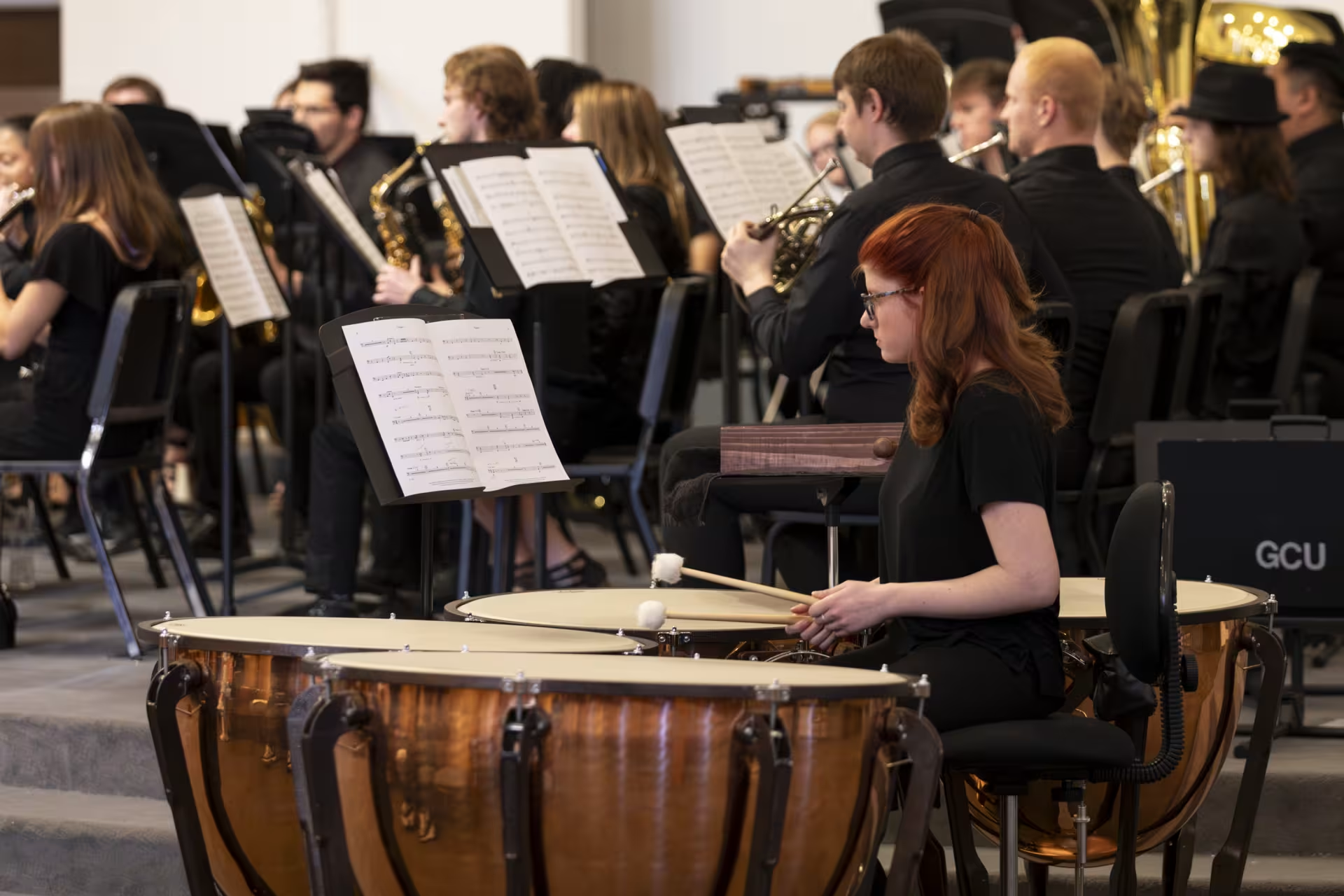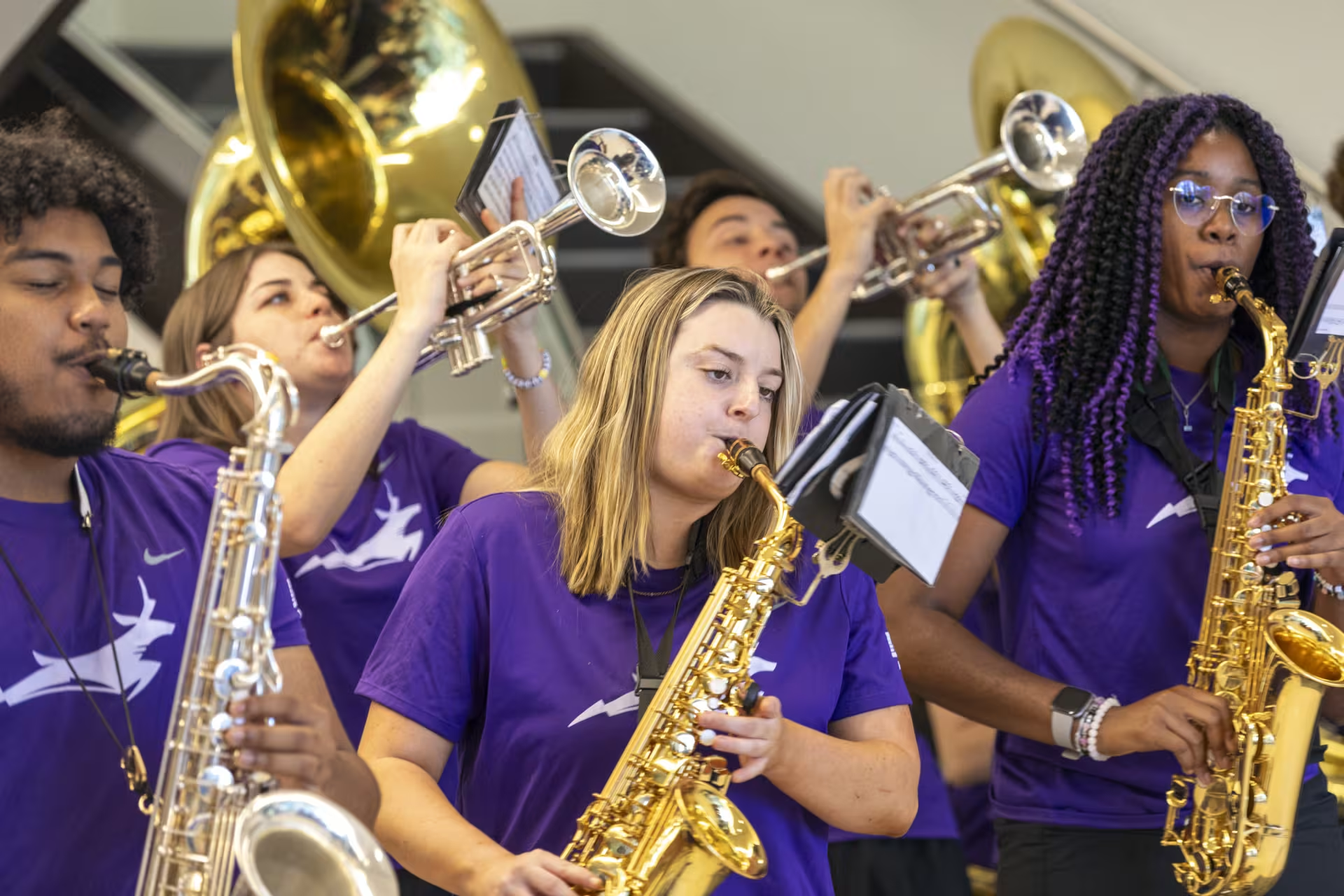
Bachelor’s in Music Education-Instrumental: Brass, Woodwind, Percussion or Strings
Inspire the Next Generation of Musicians
Prepare for a career teaching music with the Bachelor of Arts (BA) in Music Education-Instrumental: Brass, Woodwind, Percussion, or Strings degree at Grand Canyon University. You will be taught both fundamental and advanced concepts in music education, with a focus on instrumental performances and conducting.
This BA in Music Education degree is offered by the College of Arts and Media in collaboration with the College of Education and leads to initial teacher licensure. To become eligible for a teaching license, you are required to successfully complete specified practicum hours, state exams and a student teaching experience. You may also be required to obtain an institutional recommendation from GCU.
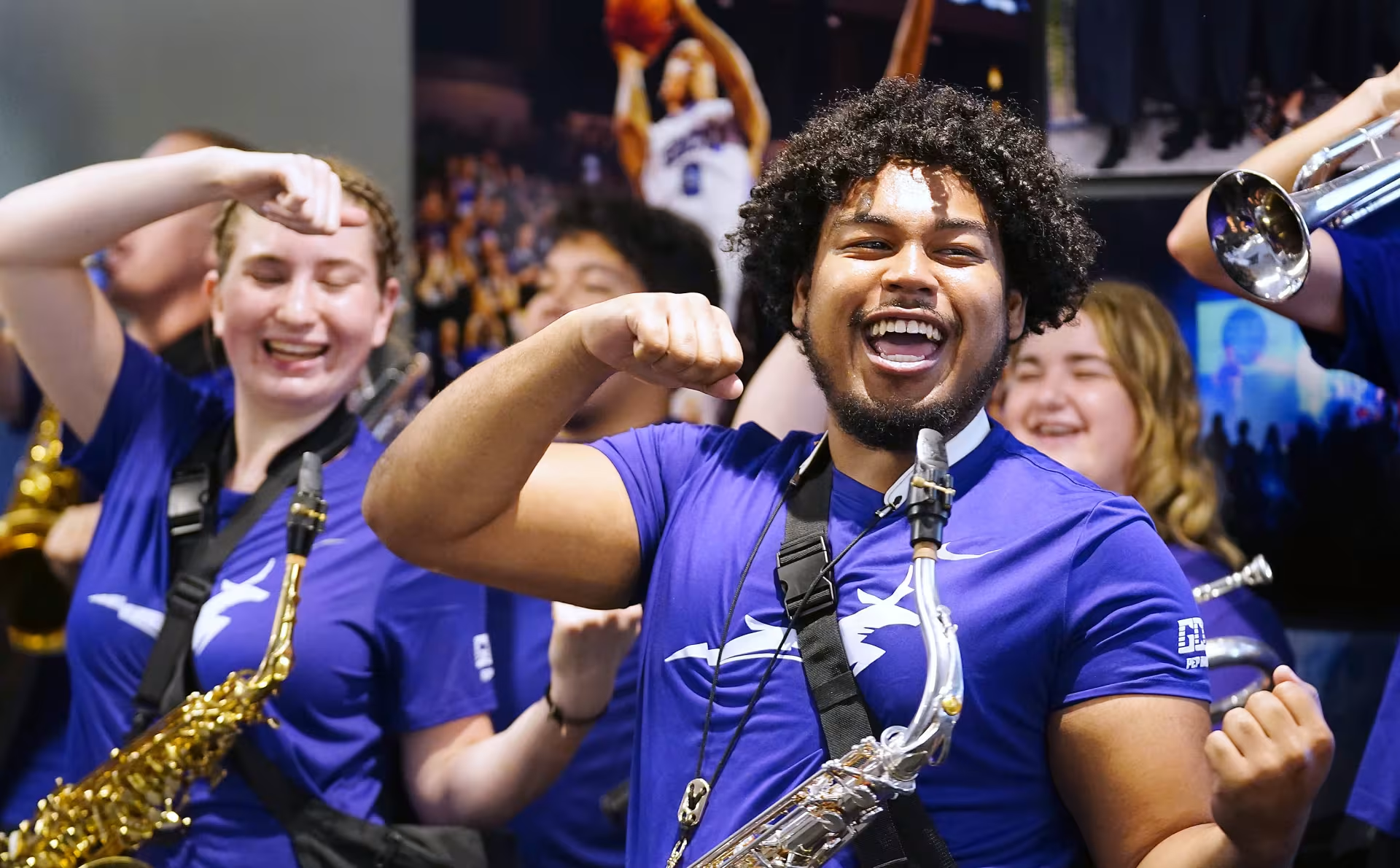
Campus: $8,250 per semester [More Info]
Up to 90 credits, only 84 can be lower division
Credits: Fill out the Lopes Eval to find out what will transfer
Admission Requirements (Bachelor's)
- 16+ years old
- High School Graduate
- 3.0+ Unweighted GPA
OR 2.5+ Unweighted GPA and
- ACT: 19
- SAT: 1000*
Admission requirements may differ based on degree level, program and modality, or transfer status. Some programs of study may require a higher GPA and/or other qualifying criteria for admission. Please review full admission and program requirements in the University Policy Handbook.
*Math and reading only on a 1600 point scale (test date after 3/1/2016). SAT score of 1380 required for 2400 point scale (test date before 3/1/2016).
Earn Your Bachelor’s in Music Education at GCU
This degree program intricately weaves together theoretical instruction with practical engagement, offering a holistic educational experience in music. By merging traditional classroom learning with hands-on application, you can delve into music theory, history, composition and performance techniques while simultaneously honing your skills through private instrument lessons and ensemble participation.
At GCU, you will participate in a range of performances to demonstrate your talents and progress while working toward your BA in Music Education-Instrumental degree. You can also take advantage of GCU's campus culture, including well-equipped facilities and student amenities and resources, encouraging you to maximize your time as part of the Lope community.
Take Instrumental Music Education Courses on Campus
This bachelor’s degree in music education is available via on-campus courses that encompass both class and private instructional formats. You will have an opportunity to pursue your passion for instrumental music with other like-minded students and enjoy opportunities that can refine your musical talents and broaden your exposure to various musical styles and composers. In-person classes can provide invaluable opportunities for live demonstrations, personalized feedback and collaborative learning through ensemble rehearsals.
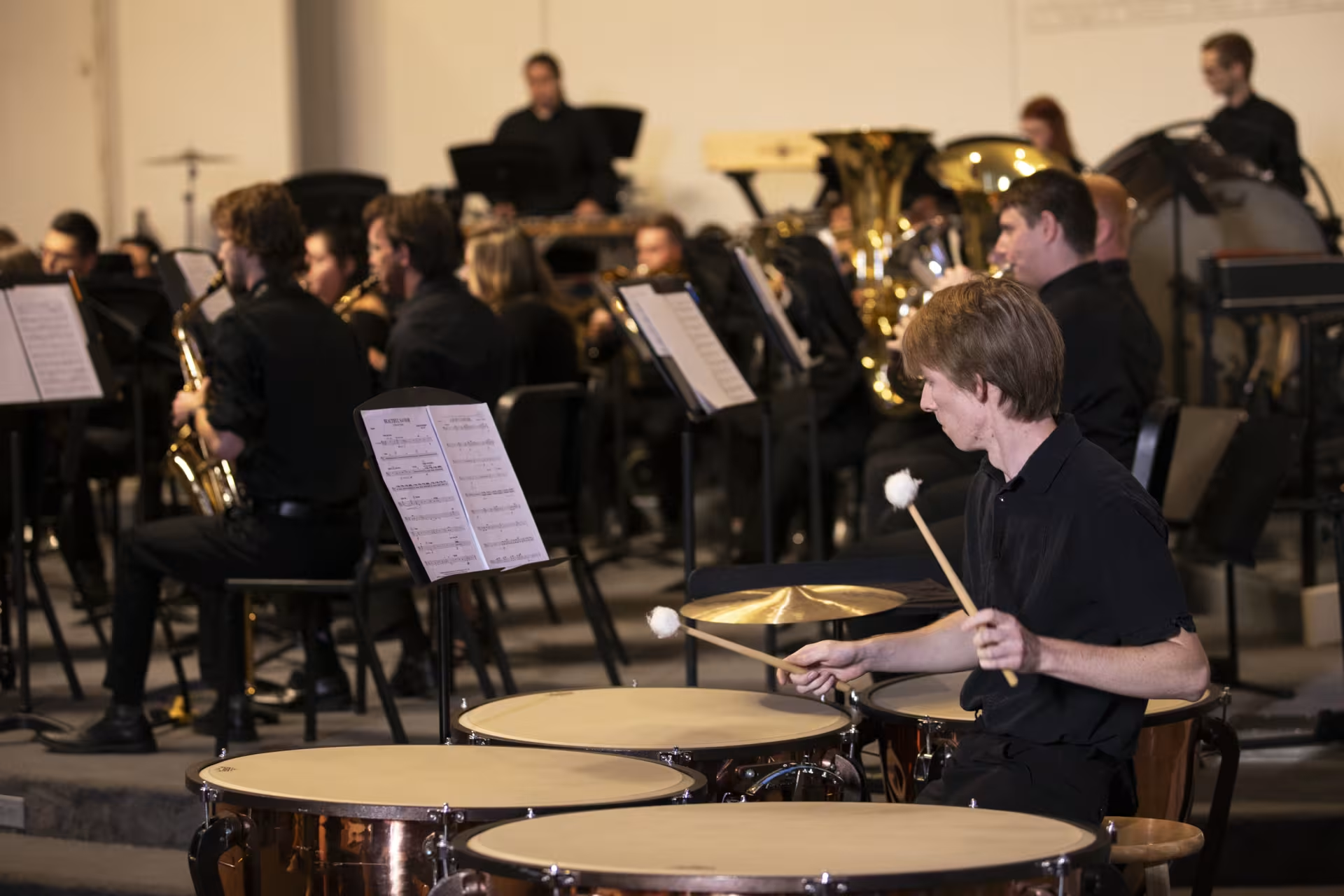
Application Requirements for the BA in Music Education
This degree combines coursework in music history and theory with advanced, hands-on concepts of teaching and pedagogy. All degree program applicants are required to complete a music theory assessment prior to acceptance into the program. While auditions are optional for acceptance, they are required for scholarship consideration. Performance scholarships are available on a first-come, first-served basis. You are encouraged to audition early.
Prepare for Future Licensure and Certification
This Bachelor of Arts in Music Education degree leads to initial teacher licensure and includes a student teaching or internship experience. Teacher candidates will observe teaching situations in K-12 classrooms and complete full-time student teaching internships prior to graduation. These internships involve an eight-week student teaching experience in an elementary classroom and an eight-week student teaching experience in a secondary classroom.
Upon completion of this degree, instrumental music education majors may then apply to earn their teaching license through their state. Teacher licensure can help you to seek employment as a music instructor or band conductor in private and public schools.(See disclaimer 1) As you choose the right degree program for you, it is important to be aware of different certification requirements specific to the state you plan to teach or lead in.
Explore Music Teaching Skills With a Bachelor’s Degree in Music Education
The BA in Music Education degree is a multidisciplinary degree program that strives to instill competencies in performance music and music education, as well as transferrable skills.
The curriculum is designed to align with the standards of the National Association of Schools of Music (NASM) and the Interstate Teacher Assessment and Support Consortium (InTASC). If you are looking for a degree that can blend your passion for music with educating the next generation of K-12 students, you might be a good fit for this program.
Some of the instrumental music education courses included with this degree teach skills such as:
GCU takes pride in integrating the Christian worldview and the principles of faith-based moral convictions into each course of the program. You are encouraged to broaden your God-given talents as a musician while preparing to lead and execute classroom instruction in elementary and secondary settings.
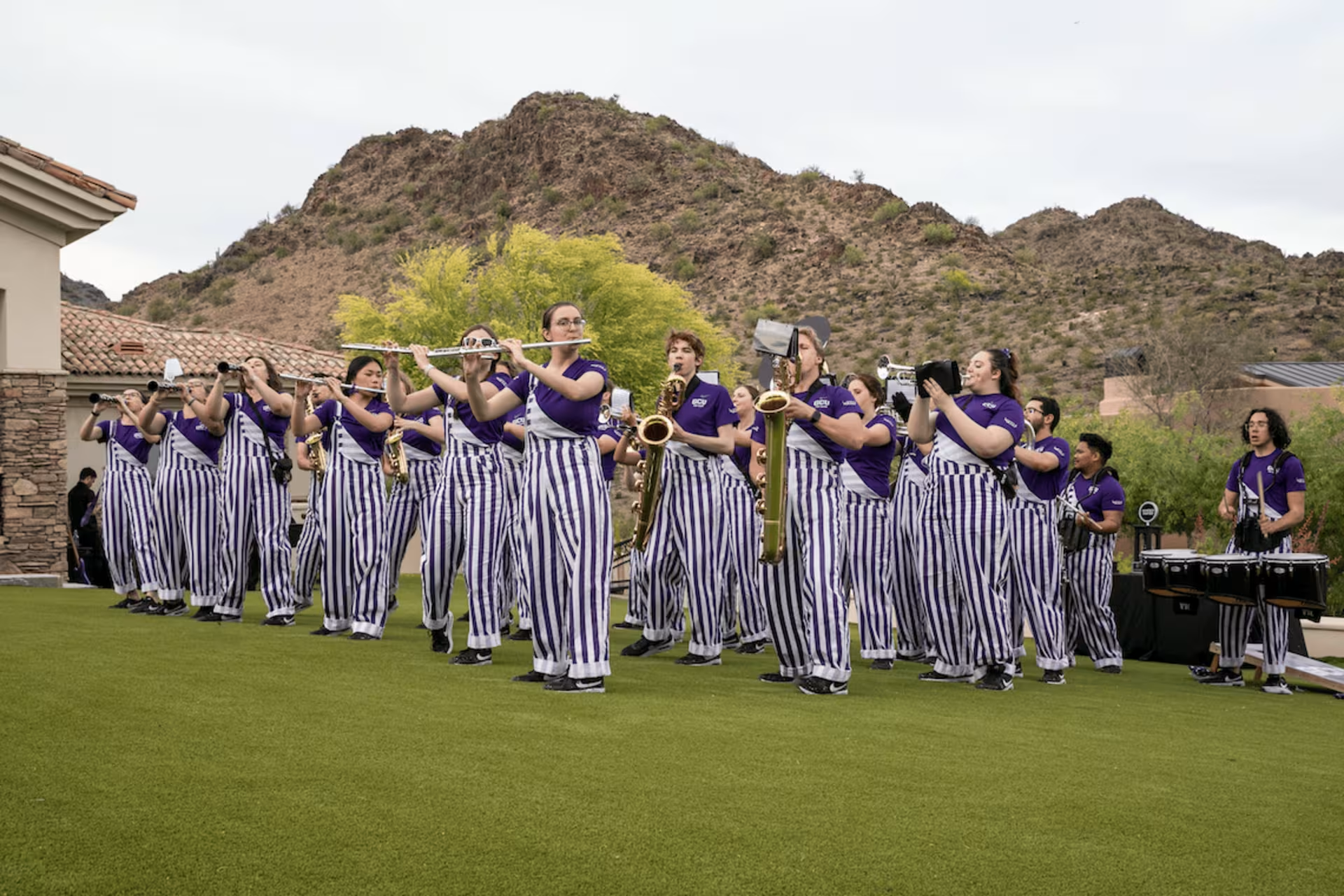
Topic Areas in This Instrumental Music Education Degree
You will complete private instrument lessons on a primary instrument, present a formal, solo recital, observe teaching situations in classrooms and complete full-time student teaching internships prior to graduation.
You will be taught the following topic areas of instrumental music education:
Career Paths for Bachelor's in Music Education-Instrumental Graduates
According to the New England Board of Higher Education, students enrolled in music education benefit from better memory retention, language, cognitive processing, problem-solving abilities and better hand-eye coordination.(See disclaimer 2) As an aspiring music educator, you may one day share your love of music with others and inspire your students to work toward lifelong personal and professional success.
With a firm foundation of competencies in musical performance and music education, graduates may be prepared to pursue employment as an art, drama or music teacher in public or private K-12 schools.
Instrumental Music Education at an Institutionally Accredited University
As an institutionally accredited school, GCU is privileged to prioritize the quality of our instruction and curriculum. The Higher Learning Commission has continually accredited GCU since 1968. The College of Arts and Media shares the university’s commitment to upholding the principles and standards established by our accrediting bodies.
Bachelor of Arts in Music Education-Instrumental FAQs
Choosing a career path can be challenging for students. It may be helpful to spend some time researching your career field and degree options. The following frequently asked questions and answers are intended to provide a starting point for your research in music education.
What is the difference between the instrumental music education degree and the choral voice degree?
Can the bachelor’s degree in music education-instrumental help me become a band teacher?
Is a BA in Music Education-Instrumental degree worth it?
Should I earn the BA in Music Education-Instrumental degree or the BA in Music: Instrumental Performance emphasis?
Program Curriculum
General Education Requirements
Required General Education Courses
Core Courses

Nurture your love of music and pursue your passion for teaching and inspiring the next generation of young musicians. Fill out the form on this page to learn how you could earn your bachelor’s in music education at GCU.
Visit the "State Disclosures" section on the page of the program you’re interested in at gcu.edu for details on state restrictions.
- U.S. Bureau of Labor Statistics. (2023, Sept. 6). How to Become a Kindergarten or Elementary School Teacher. Occupational Outlook Handbook. Retrieved on Nov. 29, 2023.
- Eric. (2018, June). Tuning In: Six Benefits of Music Education for Kids. New England Board of Higher Education. Retrieved April 11, 2024
- J., Alex. (2023, Jan. 30). The Difference Between Vocal and Non-Vocal Melodies. MelodyStudio. Retrieved Nov. 17, 2023.
- Indeed. (2022, Oct. 26). 10 Jobs in Music Education (With Duties and Salaries). Retrieved Nov. 17, 2023
- Parker, S. (2021, March 9). Tips on Selecting the Right College Music Program. National Federation of State High School Associations. Retrieved Nov. 17, 2023.


